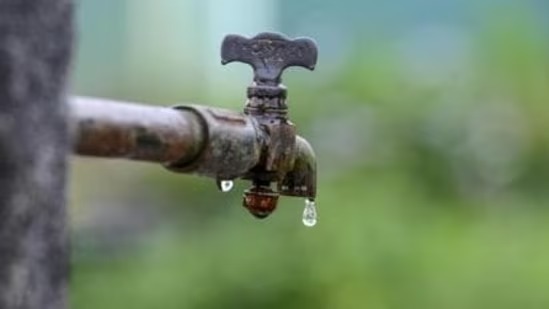A severe water crisis has left Bengaluru, India’s tech hub, with dry taps, leaving residents and offices without drinking water.
In a bid to mitigate the situation, the Karnataka government announced a ban on the use of drinking water for non-essential purposes on Friday. This includes activities such as car washing, gardening, construction, water fountains, and road construction and maintenance.
The Bangalore Water Supply and Sewerage Board (BWSSB), the agency overseeing water supply in the city, has imposed a fine of Rs 5000 for any violations of the order. Earlier on Thursday, the Bengaluru city administration fixed the price of water tankers after residents complained of extortion by tanker owners.
The Water Crisis
Bengaluru heavily relies on groundwater and pipelines fed by the Cauvery river to fulfil its daily water requirements. However, water levels have plummeted due to continuous groundwater pumping and a weakened southwest monsoon last year, which failed to replenish the depleted water sources.
The reservoirs levels in dams built along the Cauvery River in Karnataka are also running low due to insufficient rainfall, resulting in a drought being declared in many parts of the state last year.
With many urban and sub-urban parts of the city facing severe water scarcity, residents are forced to ration water use and pay almost double the usual price to meet their daily needs.
Earlier in the week, Karnataka Chief Minister Siddaramiah announced the government would take strict action against district authorities if they failed to provide adequate water in their areas. Additionally, the chief minister ordered the release of more funds to drill borewells and supply water tankers.
The situation worsened this week when tanker owners went on strike to protest the government’s move to regulate them.
Tackling the crisis
To tackle the worsening situation, some restaurants are considering using disposable plates to save on washing-up, while others are putting up advisories in restrooms and training staff on how to operate with less water.
Meanwhile, larger companies are also taking measures. Microsoft is using tap aerators to control water flow and recycling water in the washrooms at its office in Bagmane Constellation Business Park, according to a memo sent to workers.
Walmart, which implemented similar water conservation measures well before the crisis, said it was encouraging landlords to use recycled water for landscaping and gardening.
(Input from Agencies)










